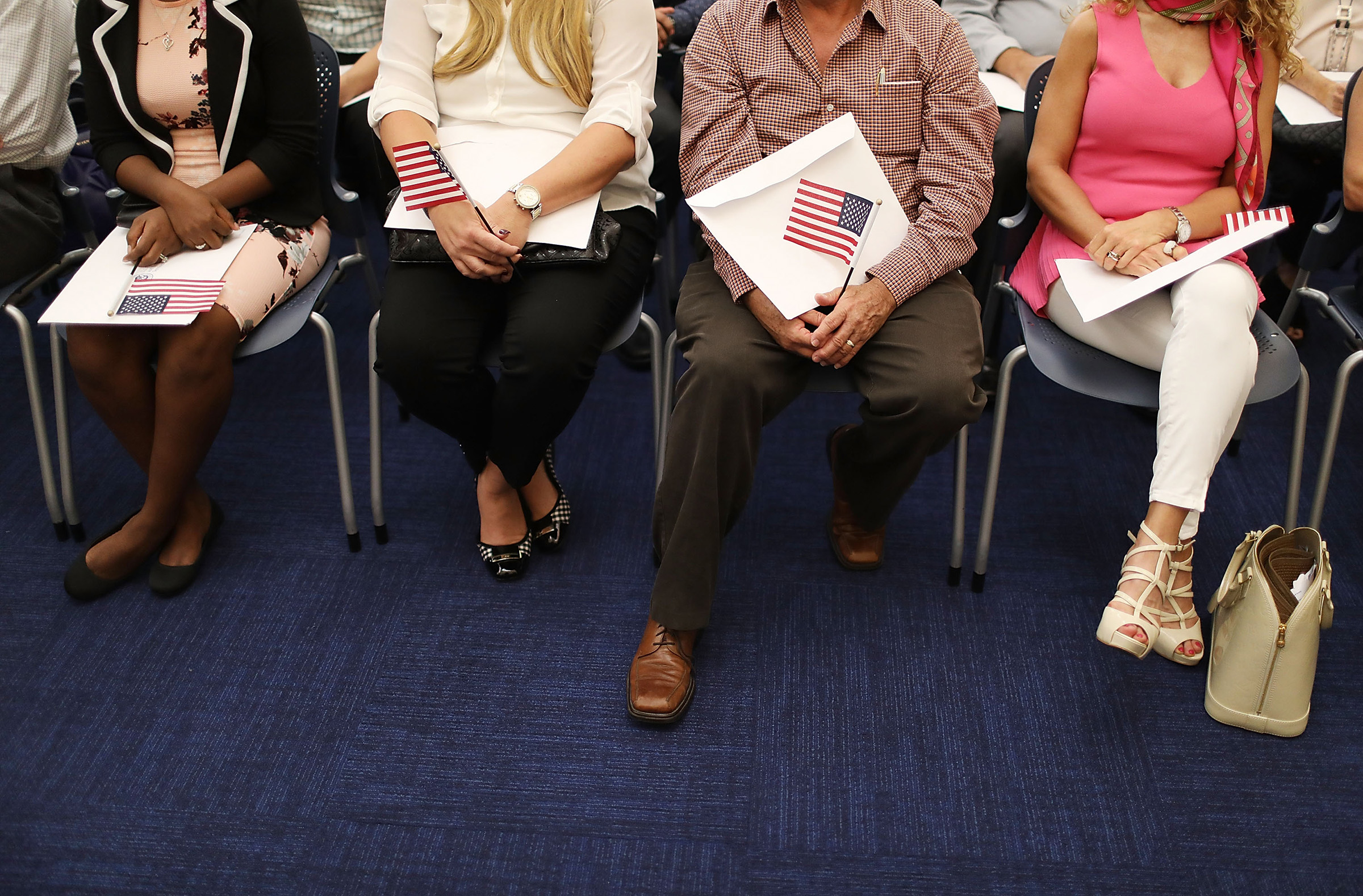On Jan. 8, 2014, a homeless man named Alexander Baxter made a bad decision. A suspect in a burglary, he ran from the police and then compounded his error by entering a home that was not his. He made a mistake, but he did not deserve what came next. After police threatened to release their dog if he didn’t surrender, Baxter did not answer at first. Then, after the dog found him, he sat down and put his hands in the air, yet the police unleashed the dog again. The dog attacked and inflicted injuries that required emergency medical treatment.
Baxter sued the police and lost. A court of appeals ruled that the arresting officers enjoyed immunity for their actions. The officers violated Baxter’s civil liberties, but he had no recourse against the men who harmed him. On behalf of Baxter, in October, the ACLU filed a petition with the U.S. Supreme Court, asking it to reverse the decision.
Why bring up the plight of Alexander Baxter? Because it goes to the heart of whether all Americans can enjoy the benefits of our nation’s most basic social compact: the fundamental freedoms guaranteed by the U.S. Constitution. As our nation fractures upon religious, political and cultural lines, there still remains a distinctly American ideal, articulated in the Declaration of Independence and operationalized in the Bill of Rights.
“We hold these truths to be self-evident,” says the Declaration, “that all men are created equal, that they are endowed by their Creator with certain unalienable Rights, that among these are Life, Liberty and the pursuit of Happiness.” This is an aspirational statement. It has no legal force. The Bill of Rights, however, does have the force of law, and the rights it articulates—including freedom of speech, free exercise of religion, and rights to due process—spell out (to quote the 14th Amendment) the “privileges or immunities” of American citizenship.
I’m politically conservative, but I’m also a civil libertarian. In plain terms, that means I’ve dedicated a large segment of my career to defending the civil liberties of people who strongly disagree with my politics. And in that career—which has included defending people of different faiths, different cultures, different sexual orientations and different ethnicities—I’ve discovered that a shared defense of civil liberties ties us together in both fellowship and interdependence.
The fellowship can be easy to see. Defending the rights of others creates a tangible bond of friendship and understanding. Conversely, it is difficult for liberty to survive enmity. America’s darkest days have tied together dehumanization and oppression. It has denied liberty to those men and women it despised. But the defense of liberty itself creates a lasting communal bond.
The interdependence, however, is often obvious mainly to lawyers. We see how the victories of conservatives and progressives alike protect the social compact for all.
Take, for example, a recent Arizona case in which a federal judge reversed criminal convictions against four progressive religious activists for providing humanitarian supplies to migrants in a federal wilderness. The court held that the activists were protected by the Religious Freedom Restoration Act, and one of the cases it cited was Burwell v. Hobby Lobby, the controversial 2014 decision that protected the religious—freedom rights of a conservative company to refuse to comply with Obama-care mandates to cover certain kinds of contraceptives for its employees. The victory of conservative believers helped keep progressive believers out of prison.
Our legal system has made great strides in extending the blessings of liberty far beyond the most privileged populations in America’s founding. Our Constitution was once a dead letter for African Americans, meaningless to Native Americans and observed mainly in the breach for many other marginalized groups. Slowly, painfully, this has changed. But there is work yet to do.
Our nation is still too protective of public servants who violate the fundamental freedoms of American citizens. It is still too focused on outcomes—who wins—rather than on the health of our Bill of Rights.
At its best, the American social compact vindicates the rights not just of those on the left and the right, but also of those who are marginalized and powerless. This brings us back to Alexander Baxter, a homeless man surrendering to the agents of the state, sitting with his arms in the air. The American social compact reaches us, yes, but it also reaches him, and if the Supreme Court can vindicate his rights, it will take yet another important step toward the fellowship and interdependence that can help heal a polarized nation.
- The 100 Most Influential People of 2024
- Coco Gauff Is Playing for Herself Now
- Scenes From Pro-Palestinian Encampments Across U.S. Universities
- 6 Compliments That Land Every Time
- If You're Dating Right Now, You're Brave: Column
- The AI That Could Heal a Divided Internet
- Fallout Is a Brilliant Model for the Future of Video Game Adaptations
- Want Weekly Recs on What to Watch, Read, and More? Sign Up for Worth Your Time
